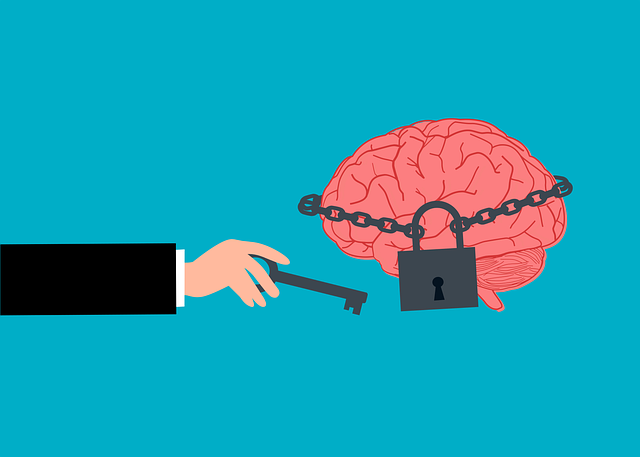In today's world, mental wellness is paramount, driving demand for specialized support like Castle Rock Sexual Addiction Therapy (CRSAT). CRSAT offers personalized coaching using evidence-based practices such as Crisis Intervention Guidance and Conflict Resolution Techniques to address everyday stress to complex issues. Integrating CBT, mindfulness, and motivational interviewing, CRSAT helps individuals overcome sexual addiction through individual counseling, group support, education, and emotional intelligence skills training. Cultural sensitivity is crucial, tailoring approaches to diverse backgrounds for improved self-esteem and emotional healing. Continuous improvement is fostered through goal setting, evidence-based assessments, client feedback, and community outreach evaluation. Regular training sessions enhance coaching effectiveness and responsiveness to evolving participant needs.
In today’s fast-paced world, mental wellness coaching programs are more crucial than ever. This comprehensive guide explores key aspects of developing effective support systems, focusing on sexual addiction therapy as a case study. We delve into understanding the rising need for such programs, defining and designing tailored approaches, and integrating evidence-based practices like those offered by Castle Rock Sexual Addiction Therapy. Additionally, we emphasize creating supportive environments and measuring success to ensure continuous improvement in coaching models.
- Understanding the Need for Mental Wellness Coaching Programs
- Defining and Designing Effective Sexual Addiction Therapy
- Integrating Evidence-Based Practices into Coaching Models
- Creating a Supportive Environment for Client Transformation
- Measuring Success and Continuous Improvement in Coaching Programs
Understanding the Need for Mental Wellness Coaching Programs

In today’s fast-paced world, mental wellness is a cornerstone of overall health and well-being. The demand for specialized support has never been higher, with an increasing awareness of the impact that stress, anxiety, and other mental health issues can have on individuals’ lives. This shift in perception has paved the way for innovative solutions like mental wellness coaching programs, which offer personalized guidance and support. These programs cater to a wide range of needs, from managing everyday stress to addressing complex issues such as Castle Rock sexual addiction therapy.
By incorporating evidence-based practices and techniques like Crisis Intervention Guidance, Conflict Resolution Techniques, and Healthcare Provider Cultural Competency Training, mental wellness coaching programs empower individuals to take control of their mental health. These interventions are particularly crucial in diverse communities where cultural sensitivity and understanding play a significant role in effective treatment. Such programs not only enhance resilience but also foster a sense of empowerment, enabling individuals to navigate life’s challenges with greater confidence and improved coping mechanisms.
Defining and Designing Effective Sexual Addiction Therapy

Defining Castle Rock Sexual Addiction Therapy involves recognizing it as a specialized form of mental wellness coaching focused on addressing complex behaviors related to sexual compulsion. This therapy aims to help individuals understand and overcome their addiction, promoting healthier relationships and improved emotional well-being. By integrating evidence-based practices and tailored strategies, therapists facilitate a safe space for clients to explore the underlying causes, triggers, and patterns contributing to their addiction.
Designing effective Castle Rock Sexual Addiction Therapy requires a comprehensive approach that combines individual counseling sessions with group support. It emphasizes education about sexual health, consent, and healthy boundaries. Therapists also teach emotional intelligence skills to help clients manage impulses and make informed decisions. Community outreach program implementation plays a vital role in expanding access to these services, while Mental Health Policy Analysis and Advocacy ensures that evidence-based practices like Castle Rock Sexual Addiction Therapy are integrated into broader mental health systems.
Integrating Evidence-Based Practices into Coaching Models

Integrating evidence-based practices into coaching models is a pivotal step in enhancing the effectiveness of mental wellness coaching programs. These practices, backed by extensive research and proven results, offer a structured framework for coaches to support individuals in their journey towards better mental health. By incorporating techniques such as cognitive-behavioral therapy (CBT), mindfulness, and motivational interviewing, coaches can provide tailored interventions that address specific challenges. For instance, Castle Rock Sexual Addiction Therapy has successfully utilized evidence-based approaches to help clients navigate complex issues related to sexual addiction, fostering healing and personal growth.
This integration goes beyond mere application; it involves a continuous learning process for coaches. Staying abreast of the latest research in mental health, including findings from the Mental Wellness Podcast Series Production and Burnout Prevention Strategies for Healthcare Providers, ensures that coaching models remain relevant and impactful. Additionally, promoting Self-Care Practices among coaches is essential to prevent burnout and maintain the energy required to support clients effectively. This holistic approach not only benefits the coach but also enriches the overall coaching experience, ultimately enhancing the outcomes for those seeking mental wellness guidance.
Creating a Supportive Environment for Client Transformation

Creating a supportive environment is paramount for client transformation in mental wellness coaching programs. At Castle Rock Sexual Addiction Therapy, we prioritize fostering an atmosphere that encourages clients to explore their emotional landscapes with courage and vulnerability. Through active listening, empathy, and non-judgmental support, coaches help individuals feel understood and validated, laying the groundwork for profound healing. This safe space allows clients to address underlying issues, build resilience, and cultivate healthy coping mechanisms.
Incorporating cultural sensitivity in mental healthcare practice is integral to this process. Coaches must be adept at tailoring their approaches to respect diverse backgrounds, beliefs, and experiences. By recognizing and appreciating individual differences, therapists enable Self-esteem improvement and facilitate Emotional healing processes that resonate with each client’s unique journey. This inclusive approach ensures that the transformative power of coaching reaches all individuals seeking support.
Measuring Success and Continuous Improvement in Coaching Programs

Measuring success and fostering continuous improvement are paramount aspects of any effective coaching program, including Castle Rock Sexual Addiction Therapy initiatives. By setting clear, measurable goals and employing evidence-based assessment tools, coaches can objectively evaluate client progress and identify areas for enhancement. Regular feedback mechanisms, such as pre and post-program surveys, allow clients to voice their experiences, offering valuable insights that guide adjustments in coaching techniques and program design.
Moreover, integrating a Community Outreach Program Implementation approach broadens the scope of evaluation by considering the broader social and cultural impact of the therapy. Empathy Building Strategies, a core component of successful coaching, are enhanced through regular training sessions where mentors share best practices, learn from diverse cases, and stay updated on advancements in mental health policy analysis and advocacy. This collaborative environment ensures that coaching programs remain dynamic and responsive to evolving needs, ultimately promoting better outcomes for participants.
Mental wellness coaching programs, such as those offering Castle Rock Sexual Addiction Therapy, are crucial tools in fostering individual growth and recovery. By integrating evidence-based practices, creating supportive environments, and focusing on continuous improvement, these programs can achieve remarkable results. The development of effective coaching models, combined with a deep understanding of clients’ needs, ensures that individuals receive the support they need to navigate their personal journeys towards mental wellness. This holistic approach is key to revolutionizing the way we address sexual addiction and promote overall well-being.














